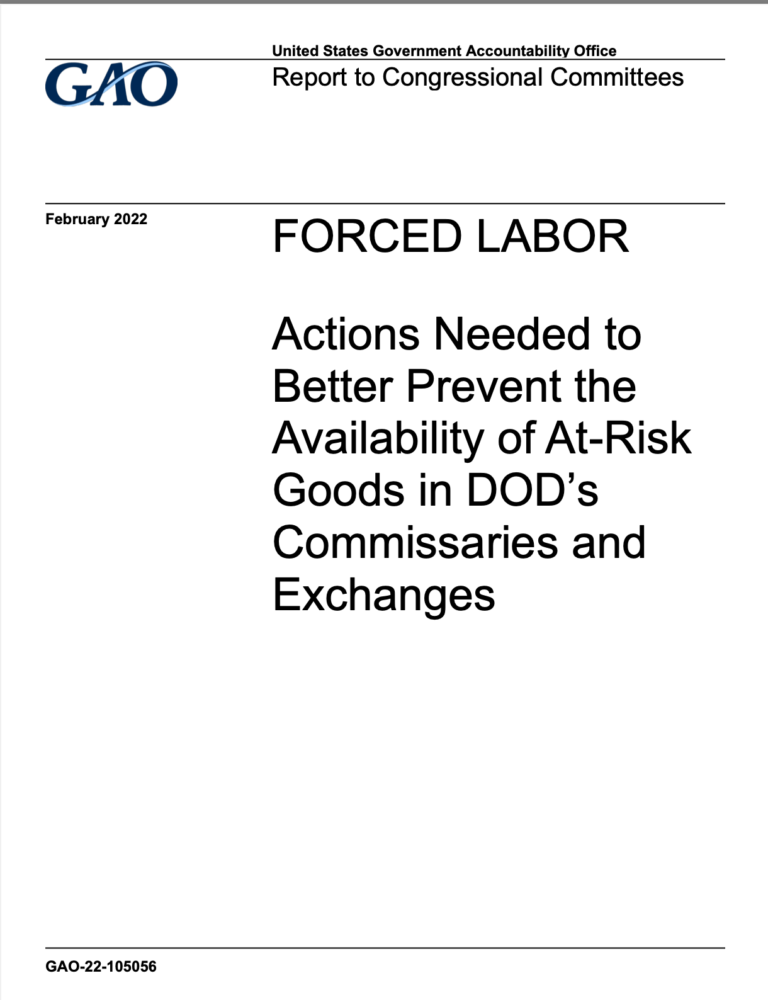The Department of Defense (DOD) has some policies and processes in place to prevent the resale of goods produced through forced labor in its commissaries and exchanges. However, despite their generally common business of providing reduced- priced groceries and retail goods to their patrons, the Defense Commissary Agency (DeCA) and the military service exchanges have varying policies and inconsistent processes. These inconsistencies result in a fragmented approach to forced labor at DOD’s resale organizations. For example, while DeCA is subject to procurement regulations that cover all categories of goods, guidance governing the exchanges focuses only on certain resale goods such as those directly imported from overseas. Establishing an overarching policy and consistent processes would help DOD have reasonable assurance that goods produced by forced labor are not available for purchase within the commissaries and exchanges.

